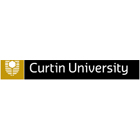Bachelor of Laws
Bachelor of Laws
Give legal advice, perform legal work and appear in court as a legal practitioner. An undergraduate degree in law is the first qualification you need to practise as a lawyer in Australia. Curtin’s Bachelor of Laws offers a rich and professionally relevant foundation in legal knowledge. You’ll learn core skills…
Categories
COURSE DESCRIPTION
Give legal advice, perform legal work and appear in court as a legal practitioner. An undergraduate degree in law is the first qualification you need to practise as a lawyer in Australia.
Curtin’s Bachelor of Laws offers a rich and professionally relevant foundation in legal knowledge. You’ll learn core skills essential to effective legal practice and build a strong commercial awareness. From early on in your studies, you’ll start to recognise the importance of respecting the rule of law along with the responsibilities and ethics of legal practice.
You’ll also have the opportunity to choose from optional units that focus on topics such as forensic advocacy, employment law, family law, human rights law and native title law and policy, and law and technology. The range of optional units enables you to tailor your degree to suit your interests.
The first year of this course is delivered in semesters at Curtin Perth, with the second and third years delivered in trimesters at Curtin Law School in Perth city. This accelerated format, which is equivalent to a four-year (full-time) undergraduate degree, means you can graduate after just three years of full-time study.
See the Curtin handbook for more course information.
Double degrees
These are the combinations available if you’d like to gain a double degree:
Law and Arts
Law and Commerce
Law and Innovation
Law and Psychology
Law and Science
What jobs can the Law lead to?
Careers
Barrister
Criminal lawyer
Employment lawyer
Family lawyer
Human rights lawyer
In-house counsel
Mining lawyer
Solicitor
Industries
Banking and finance
Courts and tribunals
Government
Law
Private legal practice
Resources
What you’ll learn
Apply knowledge of the Australian legal system, statutory rules and case law principles in both the fundamental areas of legal knowledge and a range of elective fields to the resolution of legal problems
Critically and creatively analyse legal problems to articulate the issues involved and apply legal reasoning to make a considered choice between competing solutions
Identify, access, assess and synthesise relevant information from primary legal sources such as cases and legislation and secondary sources such as journal articles and commentaries (including electronic versions of these sources) and gather relevant oral and documentary evidence
Communicate the outcomes of legal research and analysis effectively, appropriately and persuasively to colleagues, to clients and to other professionals and the broader community
Use appropriate electronic legal databases for research purposes and be able to communicate effectively in electronic forms
Maintain intellectual curiosity as to justice and its practical application in the legal system, be able to identify areas where their legal knowledge and skills require further development, and to critically reflect on their own performance as legal professionals, making use of feedback as appropriate
Articulate the similarities and differences between local and other jurisdictions, including interstate and overseas ones, and be aware of the principles of public and private international law
Articulate distinct concepts of law, justice and human rights, with an awareness of different legal traditions and cultures, particularly indigenous cultures; identify how and where indigenous persons and other identifiable social groups are differentially impacted by the legal system.
Professional recognition
Legal Practice Board of Western Australia
REQUIREMENTS
Students from different countries should have qualifications equivalent to Australian Year 12 and a scaled mark of at least 50 in English, Literature, or English as an Additional Language or Dialect.
IELTS (International English Language Testing System) – Listening, Reading, Writing, and Speaking – 6.0; Overall band score 6.5; TOEFL Score: 79 (overall); Reading 13; Listening 13; Speaking 18; Writing 21; Pearson Test of English – Listening, Reading, Writing, and Speaking – 50; Overall band score 58; TOEFL (Test of English as a Foreign Language) and PBT (Paper Based Test) – 570 and 4.5 in TWE; C1 Advanced Formerly known as Cambridge English: Advanced (CAE) 176 with 169 in Reading, Writing, Listening and Speaking. C2 Proficiency Formerly known as Cambridge English: Proficiency (CPE) 190 with 176 in Reading, Writing, Listening and Speaking.
EDUCATIONAL INSTITUTION
Curtin University is Western Australia’s largest and most culturally diverse university with Australia’s third largest international student population. Around 60,000 students from more than 130 countries study a Curtin degree, at locations including Perth, Margaret River, Kalgoorlie, Sydney, Malaysia and Singapore. Our cultural diversity adds a rich and valuable dimension to the campus atmosphere, preparing all graduates to live and work effectively in an increasingly global environment. We offer a range of industry-aligned undergraduate and postgraduate courses in business, humanities, health, engineering and related sciences. We also have a long-standing focus on Aboriginal and Torres Strait Islander education and culture, supported by our Centre for Aboriginal Studies.Curtin is widely recognised for its practical research that is focused on solving timely, real-world problems. In recent years our research activity has grown significantly, driving our rapid rise up the international university rankings.As a university that never settles, we will continue to develop existing partnerships and establish new ones in areas relevant to our research and teaching.




